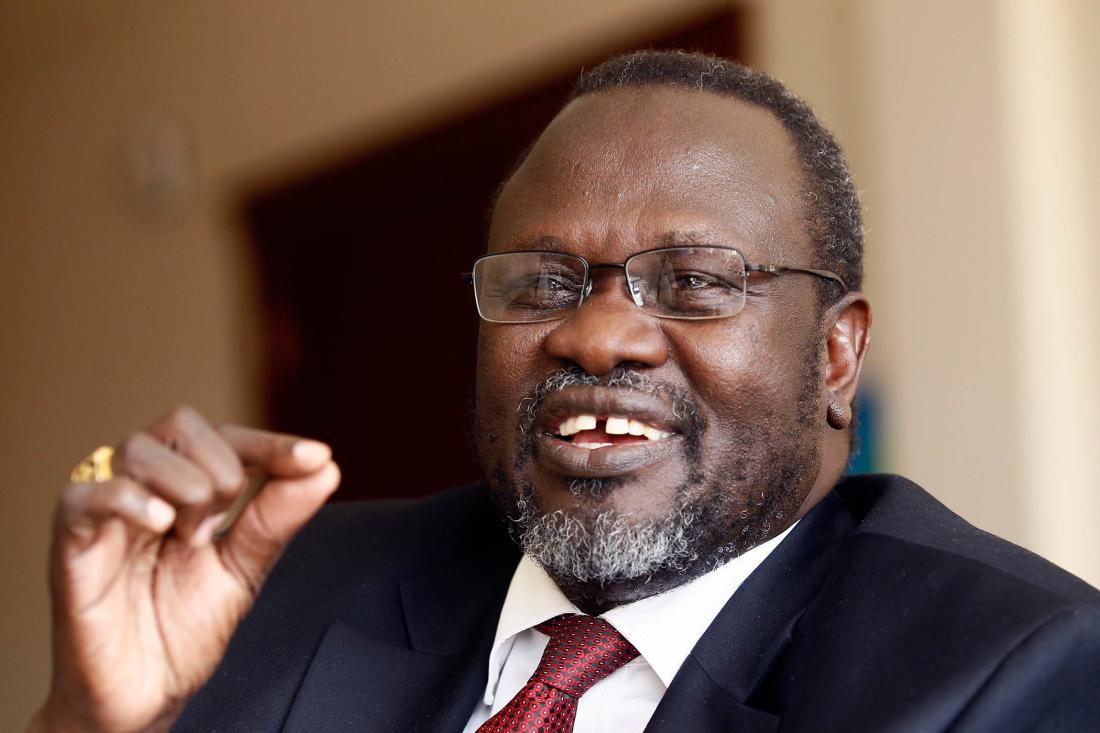By Matik Kueth
The highly contentious trial in South Sudan plunged into legal chaos on Friday as the defense team for First Vice President Dr. Riek Machar shredded important aspects of the prosecution’s case, highlighting alleged illegal arrests, unsigned documents, and procedural faults that could have compromised the process’s credibility.
During the 16th session of the Special Court at Freedom Hall in Juba, lead investigator Maj. Gen. Basilio Thomas Wani admitted under cross-examination that the arrests of Machar and other co-accused were made without Cabinet consent or proper warrants, as required by law.
Wani admitted when asked whether the Council of Ministers had sanctioned the arrests, an admission that drew murmurs across the packed courtroom.
Defense lawyers revealed that one of the defendants, a sitting lawmaker, was detained by the National Security Service despite enjoying parliamentary immunity, while others, including a serving minister, were arrested based solely on verbal orders from the Chief of Defense Forces.
Defense tears into evidence handling
The defense further questioned the legitimacy of several prosecution exhibits, including a document oddly labeled “13 out of 11” and dated after the case had already been referred to the Special Court.
Wani explained that the paperwork had been submitted earlier to the National Communication Authority (NCA) but was signed late, a claim the defense dismissed as evidence tampering.
He also admitted that some case files remained with the investigation committee even after referral to the court, a breach of procedure that defense lawyers said “destroys the chain of custody” and undermines the prosecution’s case.
One contested piece of evidence, a Radio Miraya interview allegedly linking Puot Kang Chuol to the Nasir attack, also came under heavy scrutiny.
Wani noted that he listened to the clip but could not recall the broadcast date or the identities of other participants, whom the defense named as several senior officials, including Cabinet Affairs Minister Martin Elia Lomuro.
While the NCA reportedly called the broadcast “misleading,” Wani admitted that the Media Authority, South Sudan’s official regulator, never reviewed its content.
The recording was presented in court on a USB flash drive, further raising authenticity questions.
Investigation committee’s legality questioned
In another blow to the prosecution, Wani confirmed that members of the investigation committee had not taken the legally required oath before commencing their duties, prompting the defense to argue that every finding from that committee is “null and void in law.”
When pressed about Machar’s arrest, he stated that President Salva Kiir had given a verbal directive, but that no written order or formal lifting of immunity existed until months after Machar’s detention.
The defense seized on that admission, calling it “proof of an unlawful arrest and political persecution.”
Machar and his co-accused party members face charges of mass murder, treason, terrorism, crimes against humanity, and destruction of property, stemming from a March 2025 attack on a government military base in Nasir, Upper Nile State, where prosecutors allege more than 200 soldiers were killed by forces loyal to his SPLA-IO faction and a local militia known as the White Army.
The co-accused include Puot Kang Chuol, Mam Pal Dhuor, Gatwech Lam Puoch, Lt. Gen. Gabriel Duop Lam, Camilo Gatmai Kel, Mading Yak Riek, and Dominic Gatgok Riek, all of whom have denied the charges.
The defense lawyers renewed multiple motions, including requests for access to withheld evidence, medical leave for detained defendants, and translation services for non-English speakers.
However, presiding Judge James Alala Deng sustained a prosecution objection, directing the defense to limit its cross-examination to documents the investigator could personally identify.
He adjourned the court to Monday, November 3, for the continuation of cross-examination and rulings on pending applications.



